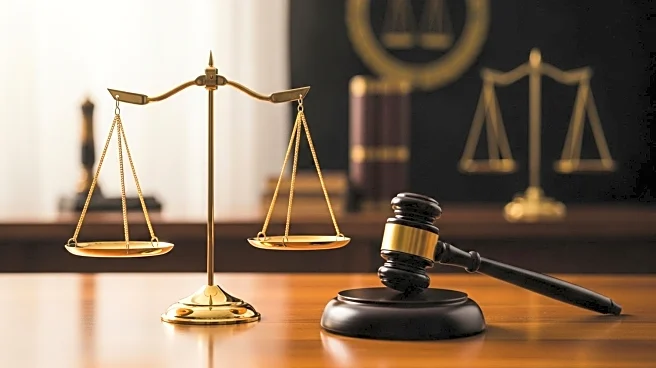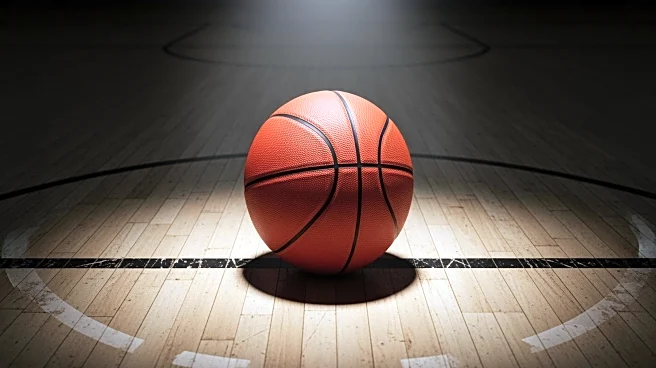What's Happening?
Indiana safety Louis Moore has successfully won a lawsuit against the NCAA, allowing him to play for the remainder of the 2025 college football season. The decision was made by Texas judge Dale Tillery, who signed an injunction prohibiting the NCAA from counting Moore's playing days at Navarro Junior College towards his eligibility. Moore had previously played two seasons at Navarro Junior College before transferring to Indiana and later to Ole Miss. His eligibility was initially exhausted over a five-year span, but a new NCAA waiver, known as the 'Diego Pavia Rule,' opened the possibility for an additional year of eligibility for junior college transfers. Moore's eligibility waiver was denied last summer, prompting him to file a lawsuit in August. The court granted a temporary restraining order, allowing Moore to play in Indiana's first few games of the season. The final ruling now ensures his eligibility for the entire season.
Why It's Important?
The ruling in favor of Louis Moore is significant as it sets a precedent for other athletes in similar situations, potentially impacting NCAA eligibility rules. The decision highlights the ongoing debate over the NCAA's five-year eligibility rule and the rights of athletes who transfer from junior colleges. This case could lead to broader changes in NCAA policies, affecting numerous athletes across various sports who seek additional eligibility. The ruling also underscores the legal challenges the NCAA faces in maintaining its eligibility criteria, which could result in more athletes pursuing legal action to extend their collegiate careers. For Indiana, Moore's continued participation strengthens their roster, potentially influencing their performance in the 2025 season.
What's Next?
The NCAA may need to reassess its eligibility rules in light of this ruling, particularly the application of the 'Diego Pavia Rule' for junior college transfers. The case is scheduled for a trial in January 2026, which could further impact NCAA policies depending on the outcome. Other athletes in similar situations might be encouraged to seek legal avenues to extend their eligibility, potentially leading to more lawsuits against the NCAA. Indiana will continue to benefit from Moore's presence on the team, which could influence their strategy and performance in upcoming games.
Beyond the Headlines
This case raises questions about the fairness and flexibility of NCAA eligibility rules, particularly for athletes who transfer from junior colleges. It highlights the need for the NCAA to balance maintaining competitive integrity with accommodating the diverse paths athletes take in their collegiate careers. The legal victory for Moore could inspire other athletes to challenge NCAA rules, potentially leading to significant policy changes. Additionally, the case underscores the importance of legal advocacy in sports, as athletes increasingly turn to the courts to protect their rights and extend their playing careers.









